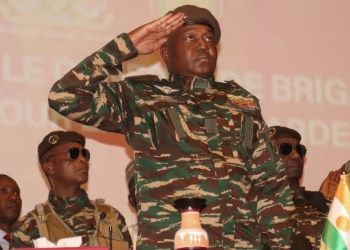The UN Security Council has extended the mandate of the Multinational Security Support (MSS) mission, as outlined in resolution 2699 (2023), until October 2, 2025.
The Council reiterated its call for Haiti and MSS leadership to regularly update the Security Council and the Secretary-General on deployment progress. Acting under Chapter VII of the UN Charter, the mission’s original mandate was set to end on October 2, 2024.
The Council also expressed its intention to consider a UN Peace Operation to support the Haitian National Police in maintaining security and sustaining the gains made by the MSS mission.
Kenyan police, along with personnel from Jamaica and Belize, are currently in Haiti to combat gang violence that has plagued local communities. They have made progress in liberating certain areas, although resource shortages have been reported.
On September 26, 2024, Jesús Cisneros, Chargé d’affaires of the Mexican Embassy to Haiti, visited MSS Force Commander Godfrey Otunge to discuss mission status, achievements, and challenges since the Kenyan delegation arrived in June 2024. Otunge highlighted the urgent need for air support for police deployments and casualty evacuations, as well as funding to establish Forward Operating Bases (FOB), which he described as crucial for the mission.
Cisneros praised MSS efforts and expressed optimism for success with consistent funding. He noted that Mexico plans to train Haitian military personnel and emphasized the importance of ongoing joint operations between the Haitian National Police (HNP) and MSS.
The MSS mission, led by Kenya, is facing significant financial challenges, having received only $67 million of the pledged $84 million through the UN Trust Fund. The mission aims to deploy up to 2,500 police personnel at an annual cost of approximately $600 million.
UN Secretary-General António Guterres, at a ministerial meeting on Haiti, commended the contributions of Kenya, Belize, and Jamaica but stressed the need for urgent funding for the mission and the HNP. He acknowledged progress in establishing transitional governance but condemned ongoing human rights abuses and violence against women and girls.
Haiti’s Prime Minister Garry Conille emphasized the urgent need for assistance, stating that the nation is far from winning its battle against armed gangs controlling much of Port-au-Prince.
The MSS was approved by the Security Council as a non-UN mission funded by member states on October 2, 2023, following the extension of the United Nations Integrated Office in Haiti (BINUH) until July 15, 2025.
President William Ruto of Kenya expressed support for transitioning the MSS into a full UN peacekeeping operation during his visit to Port-au-Prince on September 21.
Stéphane Dujarric, spokesperson for the Secretary-General, clarified that the decision to convert the MSS into a UN mission rests with the Security Council, requiring the support of the Haitian government. The US advocates for this transition, aiming to facilitate more consistent funding for peace restoration efforts through the UN system.















